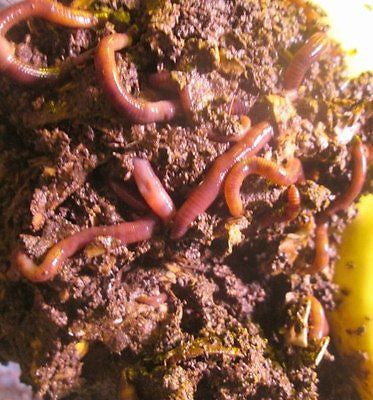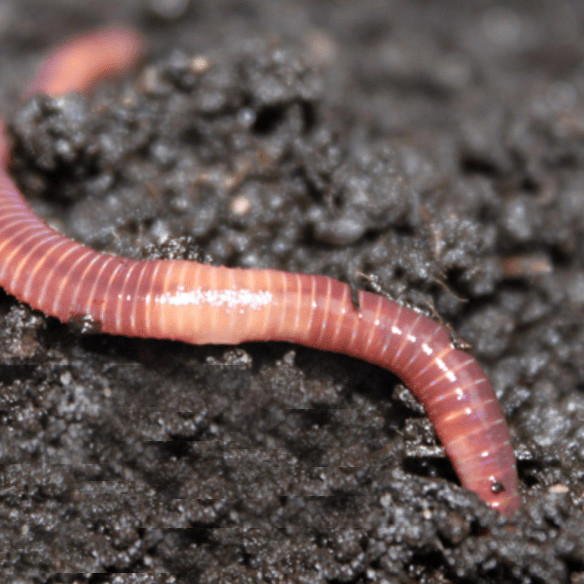Transform Your Garden With Red Wigglers: Idea
Red wigglers are not simply an interest for garden compost enthusiasts; they are critical agents of makeover for any kind of garden. By establishing a basic worm container and comprehending the dietary needs of these impressive animals, gardeners can significantly boost soil quality and plant health and wellness. The procedure of converting natural waste right into rich, fertile castings is both uncomplicated and satisfying. The true possibility of red wigglers goes beyond plain composting. Checking out the subtleties of their treatment and the diverse applications of their byproducts can open also higher benefits for your gardening ventures.

Advantages of Red Wigglers
Red wigglers, scientifically understood as Eisenia fetida, are usually hailed as nature's composting champions. These amazing worms offer numerous key benefits that can dramatically boost garden health and efficiency. They are efficient decomposers, breaking down natural material such as kitchen scraps and backyard waste right into nutrient-rich vermicompost (red worms). This all-natural fertilizer enriches the soil, promoting healthy plant growth and improving soil structure.

(red wiggler worms for sale near me)Furthermore, red wigglers freshen the dirt as they tunnel through it, developing networks that boost water seepage and origin infiltration. This oygenation decreases dirt compaction and cultivates a growing ecosystem for advantageous microorganisms. Additionally, their digestion processes create worm castings, which are rich in important nutrients and advantageous microbes that can improve dirt fertility.
One more noteworthy benefit of red wigglers is their ability to reduce waste. By composting natural products that would or else add to garbage dump waste, they play an important role in lasting horticulture practices. Lastly, integrating these worms right into your horticulture routine can result in enhanced returns, much healthier plants, and a much more vibrant yard atmosphere, making them indispensable allies for gardeners looking for to enhance their environmental impact.
Establishing a Worm Bin
Creating a worm container is an important action for any person looking to harness the benefits of red wigglers in their gardening initiatives. An appropriate worm container can be made from different materials, consisting of plastic containers, wood cages, or readily offered worm containers. The first factor to consider is dimension; a bin that goes to least 2 feet large, 3 feet long, and 1 foot deep is generally excellent for a small to tool variety of worms.
It's vital to produce a bedding layer, making use of products such as shredded paper, cardboard, or coconut coir to give a comfortable setting for the worms. The bed linens must be moist however not soggy, resembling a wet sponge - red worms.
Place the container in an area that keeps a consistent temperature, preferably between 55 ° F and 77 ° F. Avoid direct sunlight or extreme cold, as these conditions can hurt the worms. When the bin is set up, enable the bed linens to choose a couple of days before introducing the red wigglers, ensuring they have a successful setting in which to flourish.
Feeding Your Red Wigglers
As soon as the worm container is established and the red wigglers are introduced, appropriate feeding becomes essential to keeping a healthy worm population. Red wigglers thrive on a varied diet plan, largely being composed of kitchen area scraps and organic materials.
When introducing food, chop the scraps right into smaller sized pieces to help with quicker usage. In addition, bury the food beneath a layer of bedding product to stop fruit flies and various other annoyances. Monitor the feeding frequency; a general regulation is to supply food every 1-2 weeks, relying on the number of worms and the amount of food waste produced.

Gathering Worm Castings
How can you inform when it's time to gather worm castings from your container? The readiness of worm spreadings is shown by a few crucial signs. First, the material in the container should show up dark, brittle, and abundant in structure, appearing like a fine soil. Additionally, the original food scraps should be considerably broken down or almost unrecognizable, indicating that the worms have actually properly refined them.
An additional sign is the decrease in worm activity; as the spreadings collect, worms have a tendency to migrate in the direction of fresher food sources. If you see a decrease in worm movement and the visibility of castings at the end of the container, it's a clear signal that harvesting is due.
To collect, delicately dig the spreadings, taking care to lessen disruption to the worms. A popular technique entails separating the castings making use of light; worms have a tendency to burrow far from the light, allowing you to gather the spreadings a lot more easily.
Gathering frequently, approximately every three to 6 months, makes certain a continuous supply of this nutrient-rich amendment for your gardening undertakings. Remember, the top quality of your castings directly influences the health of your plants.
Utilizing Spreadings in Your Yard
To utilize worm castings successfully, mix them right into the top couple of inches of dirt before growing. This guarantees that nutrients are conveniently easily accessible to your plants. Alternatively, you can produce a nutrient-dense fluid fertilizer by soaking worm castings in water for a week, then applying the resulting "worm tea" directly to your plants. This technique not only offers prompt nutrients however additionally motivates healthy root growth.
Worm castings additionally enhance wetness retention within the soil, decreasing the demand for regular watering. On a regular basis including worm spreadings into your gardening routine can lead to robust plant growth, enhanced yields, and a total much healthier yard environment.
Final Thought
Integrating red wigglers right into garden practices uses substantial advantages, including improved soil fertility and improved plant health. By developing a worm container, supplying proper food, and on a regular basis gathering nutrient-rich castings, garden enthusiasts can foster a lasting ecological community. Using worm castings and "worm tea" even more adds to moisture retention and nutrient schedule in the soil. Ultimately, the assimilation of red wigglers assists in an efficient and environmentally pleasant method to gardening, advertising overall eco-friendly equilibrium.
Comments on “Efficient red wigglers: Improve your compost game”